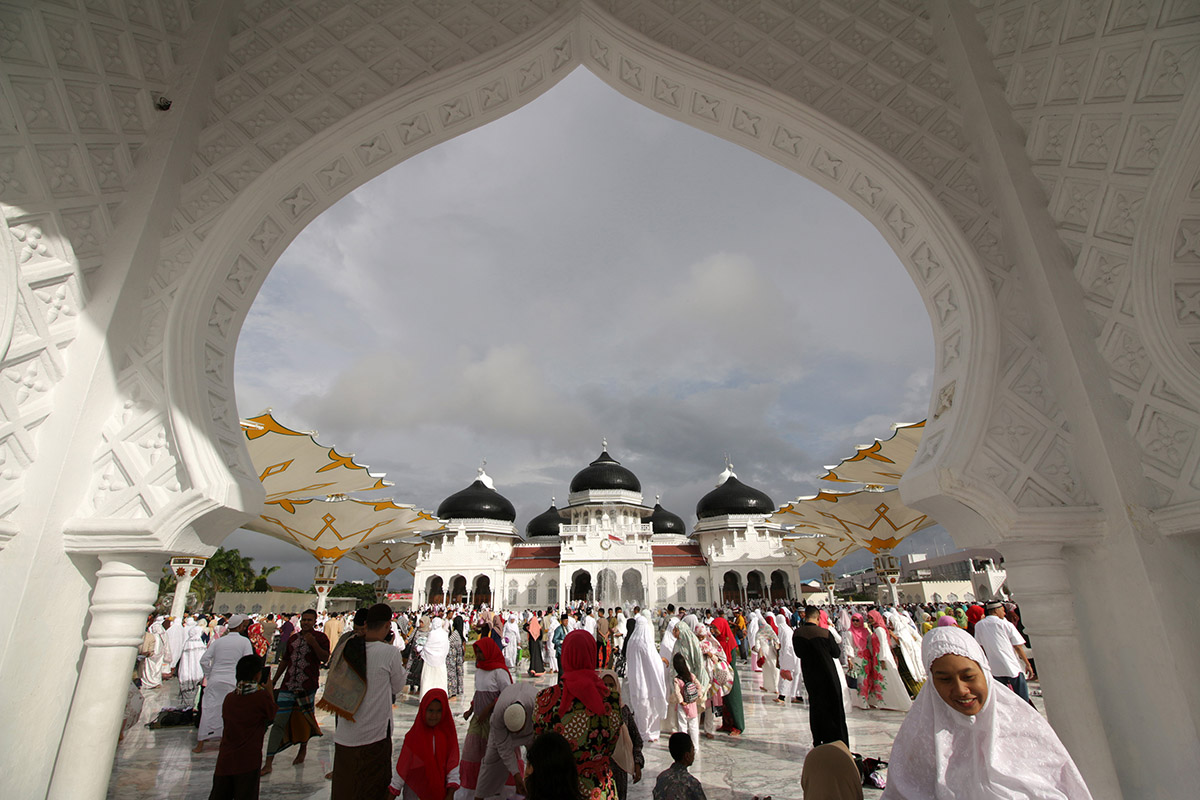Indonesia will establish 1,000 “eco-mosques,” the country’s vice president announced at last month’s UN climate summit in Bonn.
The Southeast Asian nation is home to some 260 million people, fourth after China, India and the U.S. Nearly 90 percent of them identify as Muslim, according to 2010 census data.
Indonesia also has some of the greatest expanses of rainforests, peatlands and mangroves – carbon-rich environments that are rapidly disappearing as industry expands.
“The environmentally friendly mosque or ‘eco-mosque’ program is expected to instill mosques with a concern about the mutual relationship between living things and the environment for the sustainable livelihoods of us all,” Vice President Jusuf Kalla said in a statement.
Practically, the initiative “will help the mosques to source renewable energy, manage their water and food needs sustainably, reduce and recycle waste and provide environmental education,” Thomson Reuters Foundation reported.
More broadly, it aims to cultivate among worshippers a sense of stewardship toward the natural world, in part through education programs that frame the environmental movement as a moral challenge.
Indonesia’s Muslim institutions have addressed the environment before, issuing religious edicts forbidding the trafficking of wildlife or the setting of illegal forest fires.
Hening Parlan, coordinator for environment and disaster management at Aisyiyah, the women’s wing of Indonesia’s second-largest Islamic organisation Muhammadiyah, said an eco-mosque movement could unite Indonesian Muslims to fight climate change.
“Because merely adapting to climate change isn’t enough,” she told Mongabay. “This movement is aimed to make all Muslims aware that climate change is threatening our lives.”
The planned 1,000 eco-mosques will be located in urban areas as well as disadvantaged areas lacking water and energy, according to Hening.
“Because mosques in rich areas will not be lacking in water and energy,” she said.
Some of the eco-mosques will be located in the national capital of Jakarta because the city faces water scarcity, with only 50 percent of its households having piped water, the lowest in Indonesia.
As a result, most Jakarta residents rely on raw water supply by draining groundwater beneath the city.
This article first appeared on Mongabay.
Mongabay is an environmental science and conservation news and information site.
Recommended stories:
